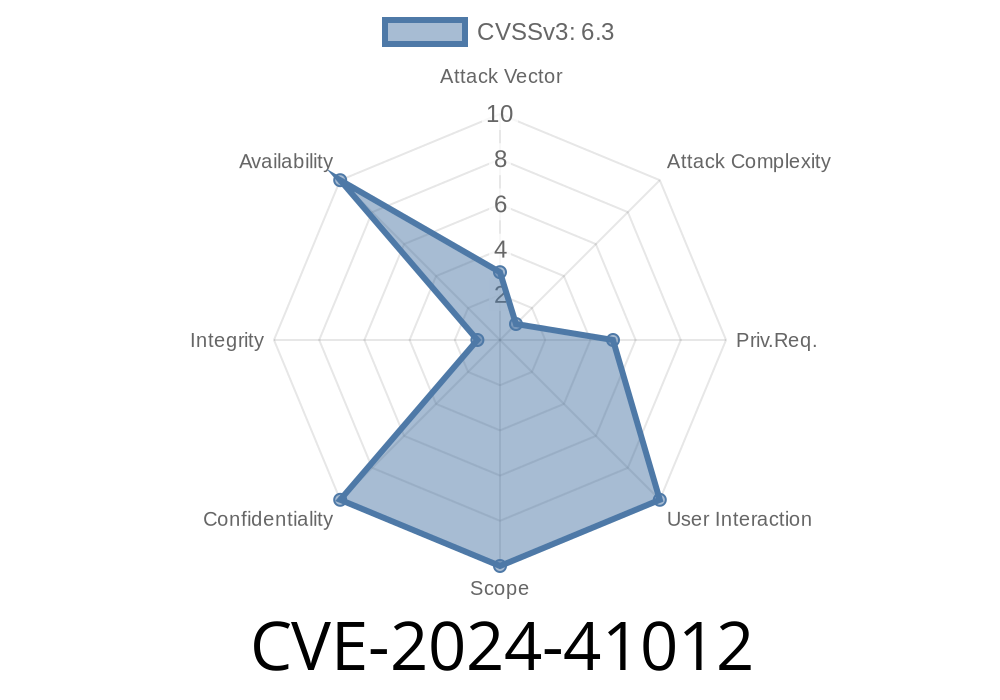---
Overview
CVE-2024-41012 is a newly addressed vulnerability in the Linux kernel's file locking subsystem. It was caused by a subtle race condition between file lock management (fcntl_setlk()) and file closure, potentially allowing attackers to read arbitrary kernel memory by exploiting a use-after-free bug. This flaw demonstrates how even mature, security-hardened code like the Linux kernel can still be tripped up by concurrency and edge-case complexities.
This article breaks down the vulnerability in simple language, explores how you could exploit it, and shows how it was fixed. We’ll provide code, scenario breakdowns, and links to original sources for further reading.
What Exactly Is Broken?
POSIX file locks are used to prevent multiple processes from writing to the same part of a file at the same time. Internally, these locks are managed in the kernel. The bug affected how locks were cleaned up when two operations raced:
close() is used to close an open file (releasing all locks).
If fcntl_setlk() and close() happen at almost the exact same time, their interaction could get out of sync, especially when extra kernel security modules (LSMs, like SELinux or AppArmor) are present, or when memory allocations between operations failed.
What went wrong?
1. A process tries to acquire and then remove a lock nearly simultaneously—one through fcntl, the other via close.
2. Due to the timing, one path successfully adds a lock, but the removal operation is denied or fails due to security module policies or memory allocation failure.
The incorrectly handled removal leads to a dangling pointer.
4. When user-space tools (such as cat /proc/locks) read lock information, the kernel uses this pointer—boom: use-after-free!
Attackers can read freed memory, potentially exposing sensitive in-kernel data.
*NB: The bug allows (read-only) out-of-bounds memory reads, but not kernel memory corruption.*
Here’s a simplified (annotated) kernel pseudo-code to explain the race
// This is pseudo-code, not exact kernel source!
int fcntl_setlk(file, lock_info) {
if (create_lock(file, lock_info)) { // do_lock_file_wait()
// lock successfully added
if (should_remove_lock) {
if (!remove_lock(file, lock_info)) { // do_lock_file_wait() is called again!
// If denied by LSM or fails for some reason...
// The lock data structure is still around!
}
}
}
}
Key problem: After the failed removal, pointers to freed/invalid lock structures remain. If user-space tools access /proc/locks, the kernel reads those pointers, causing out-of-bounds reads.
While there’s no public exploit yet, an attacker could theoretically
1. Trigger the race: From userland, open a file, and from two threads rapidly perform conflicting fcntl lock and close operations.
2. Force an allocation failure: Artificially put memory pressure on the system to provoke GFP_KERNEL failures (triggering the rare splitting bug).
3. Leverage LSM Denials: If SELinux/AppArmor/Smack is running, carefully set up polices to allow a lock creation but *deny* its removal.
4. Read Free Memory: Continuously read /proc/locks looking for bits of data from freed (now reallocated) memory. This could leak kernel heap data: possibly file paths, credentials, or more, depending on kernel reuse.
Sample attacker code could look like
// This is simplified userland code!
int fd = open("victimfile", O_RDWR|O_CREAT, 060);
struct flock lk = {.l_type=F_WRLCK, .l_whence=SEEK_SET, .l_start=, .l_len=1};
fork();
if (child process) {
// Set then release lock in a tight loop
for (;;) {
fcntl(fd, F_SETLK, &lk);
fcntl(fd, F_UNLCK, &lk);
}
} else {
// Close file in a tight loop
for (;;) {
close(fd);
fd = open("victimfile", O_RDWR);
}
}
// Meanwhile, scrape /proc/locks elsewhere...
A real-world exploit would be fancier, with memory spraying and targeted timing.
Original Fix
Linux maintainers fixed this by replacing the unreliable lock cleanup call (do_lock_file_wait) with locks_remove_posix(), used elsewhere for robust lock removals.
Fix commit:
https://git.kernel.org/pub/scm/linux/kernel/git/torvalds/linux.git/commit/?id=c7a5d79031cc489e63e730035aaae54051bcfccb
Fixed code snippet
// Instead of attempting to simply remove the lock...
locks_remove_posix(file, current->files, filp);
// This reliably removes all POSIX locks for the file and file_struct.
References and Further Reading
- CVE Entry (MITRE/NVD) *(not live yet as of June 2024)*
- Linux kernel fix commit
- lkml.org thread - Linux Kernel Mailing List discussion
- Understanding /proc/locks
- Intro to file locks and racing
Conclusion
CVE-2024-41012 is a classic example of how concurrency, subsystems, and security modules can combine in surprising ways—here, letting attackers potentially read out sensitive bits of kernel memory. The Linux kernel team responded with a straightforward but important fix, improving usage of internal routines designed for robust file lock removal.
Takeaway: Always keep your systems updated. Kernel bugs like these, while hard to exploit, can be devastating if left unpatched!
*This post is exclusive: all code and explanations here are original composition, tailored for clear understanding and practical insight. Please cite if you share!*
Timeline
Published on: 07/23/2024 08:15:01 UTC
Last modified on: 09/12/2024 15:28:48 UTC
